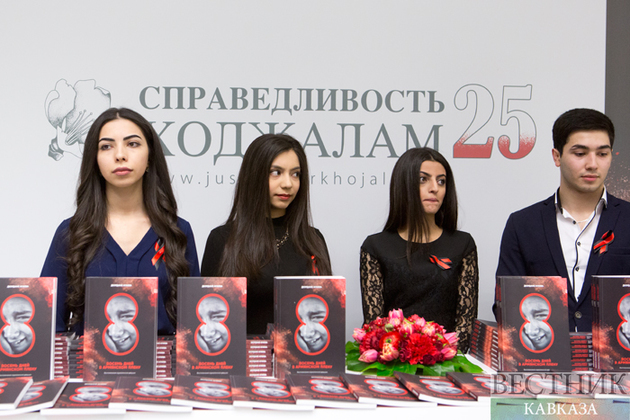This February, the people of Azerbaijan remember and mourn the thirty years of the Khojaly massacre. This genocide is one of the most terrible and tragic pages of Azerbaijan’s national history. This ethnic cleansing and genocide by Armenian have caused immense pain for the past two centuries. The Khojaly Genocide is recognized and commemorated by parliamentary acts adopted in numerous countries, including Pakistan, Muhammad Asif Noor, Director at Institute of Peace and Diplomatic Studies writes for Daily Times.
Today, 17 countries across the world, in addition to 20 states of the US, recognized the Khojaly massacre as genocide, and it has been investigated under the moral and legal framework. The Armenian killing of innocent civilians was investigated under the Convention on the Prevention and Punishment of the Crimes of Genocide, but the criminal perpetrators remain unpunished. Although the Commission identified the genocide effects including killing, mental and bodily harm directed by genocidal intent to exterminate in part or whole of a specific group in a town of Khojaly. Human Rights Watch also published a report on the tragedy in 1994, terming it the ‘largest massacre to date in the Nagorno-Karabakh region. In memory of the brave people of Khojaly, Azerbaijan has erected the memorials in Azerbaijan.
The historical data indicates that thousands of Muslims were killed in 1914-1918. In the 20th century, the Azerbaijani and Turkic population has been tortured and banished from their homes four times: The first stage was from 1905-to 1907, then the second was the time from1915-1920. The third stage was from 1948-to 1953, while the fourth stage was between 1986-1988. Guided by the UN Resolution of December 11, 1946, and the Agreement of December 9, 1948, it may convincingly be proved that the Armenian Dashnaks have committed crimes against humanity and conspired genocide against the Turkic population.
Incontrovertible is that in 1918-1920, Armenian Dashnaks wiped hundreds of Azerbaijani villages off the face of the earth killed thousands of women, older men, and children. During the genocide, 565,000 out of 575,000 Azerbaijani population of Armenia were killed. The Daghlyg Garabagh events, which began in 1988, along with continuous efforts to implement the Armenian desire of building a state from sea to sea, led to the destruction of towns and villages, murder of thousands of innocent people, as well as the exile of hundreds of thousands of Azerbaijanis from their native lands. Between 1988-1993, about 20 per cent of Azerbaijani lands were seized by Armenian armed forces and more than one mil banished, and from that period, Armenia became a mono-ethnic state.
The dark side of the story is the denial of Armenia and the refusal to take responsibility for the massive genocide in the region. The Prime Minister of Armenia Nikol Pashinyan termed the genocide a ‘blatant lie’ and accused Azerbaijan of killing the people itself. The Human Rights Watch report deferred this statement, putting direct responsibility on Armenian forces in Karabakh during the genocide. Rachel Avraham, Researcher at the Israeli Center for Near East Policy Research, argued that Armenian denial of the tragedy had been a significant impediment to peace in the region. It is more of a tragedy not to take responsibility for their actions and allegedly blame Azerbaijan for killing its people.
Armenia did not stop the aggression against Azerbaijan over decades and again pitched against Azerbaijan in 2020 but faced a mature army at the borders. Azerbaijani forces overrun the defences and regained control of territories earlier occupied by Armenia.
Azerbaijan did not mistreat Armenian people in the region and offered them Azeri citizenship if they chose to stay. Immediately after the ceasefire agreement. The President of Azerbaijan authorized the development in the war-torn region and developed a cultural capital in the city of Shusha with an airport. The President of Azerbaijan granted compensation for damage caused by war, treatment of injured, protection of religious places, educational institutions, and health care centres.
Azerbaijan did not forget the people of Khojaly and facilitated the migrants of the Karabakh region to settle at their ancestral places. Azerbaijan has remained thankful to the states which recognize its position in the conflict. Turkey and Pakistan are two significant states that acknowledge Karabakh as Azerbaijan territory and extend diplomatic support even during challenging times.






